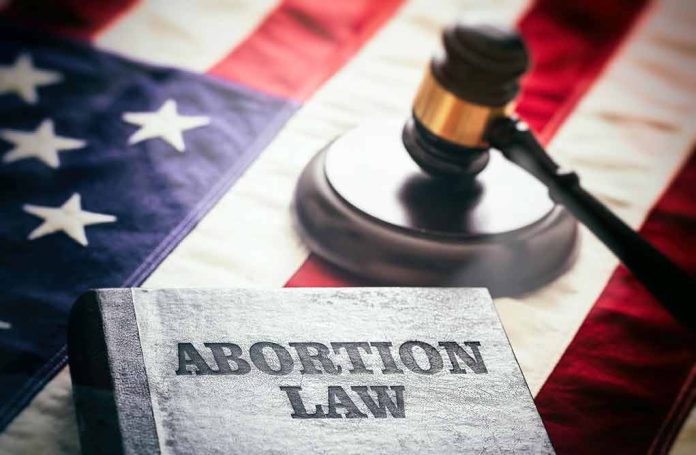
Colorado Democrats push a controversial bill arguing that killing babies through abortion saves taxpayer money compared to the cost of births, while critics express moral outrage at the cold financial calculus.
Key Takeaways
- Colorado Senate Bill 183 would require Medicaid and public employee insurance plans to cover abortion services, implementing Amendment 79 that established abortion as a constitutional right in the state.
- Democrat Julie McCluskie, a co-sponsor of the bill, explicitly argued that the state would save money through “averted births” because “a birth is more expensive than an abortion.”
- The bill is projected to cost $5.9 million annually but claims financial offset through reduced birth costs, with more than 333,000 women expected to seek abortion care yearly.
- Critics, including the Colorado Catholic Conference, argue the fiscal analysis underestimates true abortion costs and question the morality of reducing human lives to budget calculations.
- The legislation has already passed the Senate and the House Health and Human Services Committee, with implementation targeted for 2026.
Democrats Claim Financial Benefits from “Averted Births”
Colorado Democrats are advancing legislation that would require Medicaid and public employee insurance plans to cover abortion services, with proponents making the controversial argument that terminating pregnancies saves taxpayer money. Senate Bill 183, co-sponsored by Colorado House Speaker Julie McCluskie, implements Amendment 79, which established abortion as a constitutional right in Colorado after 62% of voters approved it. The bill has already cleared the Senate and is moving through House committees toward a final vote.
McCluskie made the financial case for abortion coverage in stark terms during legislative proceedings, stating: “That savings comes from the averted births that will not occur, because abortions happened instead. A birth is more expensive than an abortion, so the savings comes in Medicaid births that will not occur.”
The bill would cost the state approximately $5.9 million annually to provide abortion coverage, but supporters claim this would be offset by savings from reduced birth costs. Fiscal analysts project that more than 333,000 women enrolled in Medicaid or Child Health Plan Plus could potentially seek abortion care annually, representing significant “savings” in the Democrats’ calculation.
Critical Response to “Cost-Saving” Abortion Argument
The economic argument for abortion has sparked significant backlash. Critics contend that reducing human life to a budget calculation crosses ethical boundaries and represents a disturbing shift in how the government values citizens. Medical ethicists have raised concerns about the precedent set when healthcare decisions are driven primarily by cost considerations rather than patient welfare or moral principles.
“The premise that insurance coverage for abortion care is a societal good because it saves money on births doesn’t feel right to me,” Teter said. “Access to health care is good always.”
The Colorado Catholic Conference has challenged the fiscal analysis underpinning the bill, arguing it significantly underestimates the true cost of abortion procedures. “The fiscal note drastically underestimates the cost of abortion, especially late abortion,” said Brittany Vessely of the Conference, who estimates the average late-trimester abortion cost at $3,000, substantially higher than the figures used in the state’s calculations.
As Colorado weighs public funding for abortion, analysts say the move could actually save money https://t.co/8DKJCAfBej
— The Denver Post (@denverpost) March 25, 2025
Implementation and Broader Implications
If passed, the bill would take effect in 2026 and would reduce reliance on federal reimbursement for reproductive health care. State Senator Julie Gonzales, another sponsor of the bill, emphasized this point: “To further reduce federal interference, our legislation reduces the state’s reliance on federal reimbursement for reproductive health care. This bill upholds the will of the voters to ensure your fundamental right to access life-saving abortion care is never ripped away.”
Some observers have raised concerns about the long-term demographic and economic impacts of policies that financially incentivize abortion over childbirth. With President Trump’s administration emphasizing pro-family policies, Colorado’s approach represents a stark contrast to federal priorities. Critics note that encouraging lower birth rates could eventually undermine government programs that depend on a growing population of future taxpayers.
Despite claiming overall savings, fiscal analysts project the bill would increase spending from Colorado’s general fund while decreasing expenditures in the Department of Health Care Policy and Financing. Local governments and state employee health plans are expected to face increased costs without offsetting savings from “averted births,” raising questions about the comprehensiveness of the financial analysis.
Sources:
- What will public funding for abortion cost Colorado? Analysts estimate impact as lawmakers weigh move.
- God Help Us: Colorado Democrat Makes Case for Killing Babies Because a Murder Is Cheaper Than a Birth – Video














